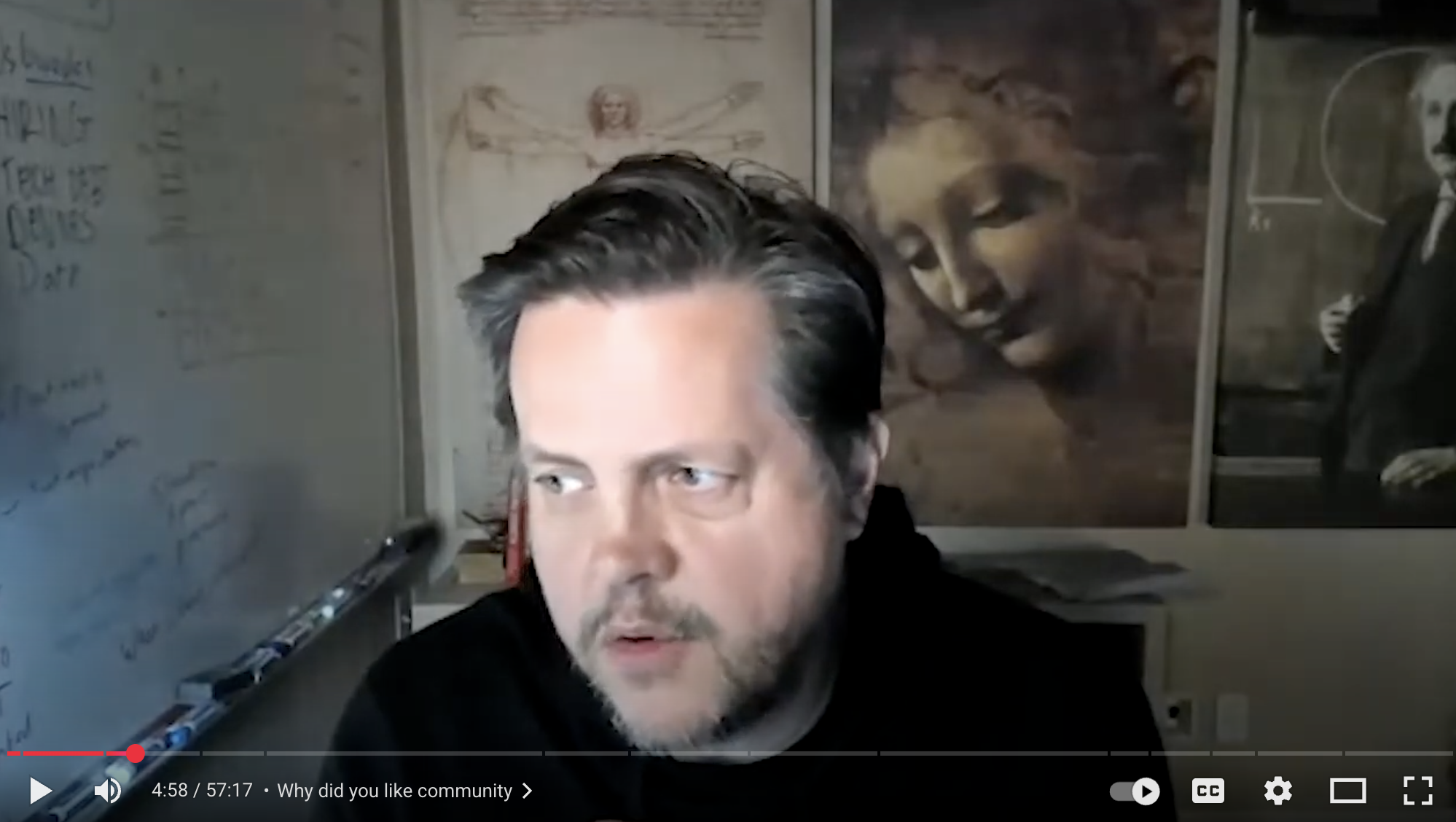When the Best Technical Minds Can't Fix Themselves

I sat down with Joel Beasley on the Modern CTO podcast last week, and within the first ten minutes, we were talking about people throwing things in meetings.
Not metaphorically. Actually throwing things.
Joel had this reaction - this beautiful, incredulous "What type of meetings do you have?" moment - that made me realize something: Most people assume technical leaders have it together. That we're rational, evidence-based, methodical humans who approach problems with clean logic and elegant solutions.
Then you put eight CTOs in a room to discuss whether to own or lease infrastructure, and suddenly it's Lord of the Flies with better Wi-Fi.
The Loneliest Smart People in the Room
Here's what I told Joel that I don't think I've said clearly before: I built 7CTOs because I was drowning in South African isolation as a kid, and IRC became my lifeline to the world.
You grow up at the southern tip of Africa during boycotts - no artists touring, no records coming in, completely cut off - and when you discover you can suddenly talk to people anywhere without restrictions? That changes you. It makes you understand what happens when brilliant people can actually connect.
Fast forward twenty years. I'm a CTO in San Diego, surrounded by hundreds of other CTOs, all of us reinventing the same wheels, fighting the same fires, making the same mistakes. Different kind of isolation. Same problem.
We're technically connected but fundamentally alone.
The Courage to Not Know
Joel asked me how to handle difficult conversations - racism, divisive topics, the stuff that makes leaders want to hide in their Kubernetes configs.
The word that came out was "courage," but not the kind you think.
Not the courage to have the right answer. The courage to admit you don't.
The courage to say: "I'm a white dude from South Africa. I'm from the oppressor's lineage. Who am I to speak to racism?" And then to speak anyway, not with solutions, but with honesty about not knowing.
I watched myself on those early calls with women CTOs, hearing my own words, knowing that if I were them, I wouldn't believe a single thing I was saying either. And instead of fixing it or defending it, I just... said that. Out loud.
"I can see this isn't landing. If I were you, I wouldn't believe me either."
Something shifts when you stop trying to debug humans like code.
The $10 Million Problem You Can't Scale Yourself Out Of
Joel and I talked about when CTOs typically show up at 7CTOs. There's a pattern.
It's not when things are hard. Technical leaders eat hard problems for breakfast.
It's when the whole game changes. When your C-suite walks in and says "We need to spend $10 million in the next 12 months" and your entire career has been about doing more with less. When you realize your fingertips can't reach the work anymore. When you get the funding round that should feel like victory but actually feels like vertigo.
You can't code your way out of that. You can't architect it. You can't sprint-plan it.
You need humans who've been there. Not to give you the answer, but to sit with you while you figure it out.
The 16-Year-Old Starbucks Philosopher
Joel told this story that wrecked me. He's sitting in a Starbucks, about to miss payroll, meeting with his advisor Andy. Pouring his heart out. Getting incredible advice.
And a 16-year-old kid sweeping up walks over and says: "That's really good advice. That's like the stuff you see on Instagram."
Joel's having the worst day of his life and has to resist telling this kid to shut up.
But here's what got me: Joel knew he needed to drive an hour to sit with Andy. Not to get a solution. Not to be fixed. Just to say the thing out loud to another human who would get it.
That's not weakness. That's knowing how humans actually work.
What I Learned from Almost Dying in My Bathroom
I got really sick in December. Something called labyrinthitis - throws off your balance, makes you dizzy, makes you throw up. I genuinely thought I might be having a stroke.
And I had this moment - this embarrassingly dramatic moment - where I'm 49 years old thinking: "If I die right now, do I want my kids to find me in the bathroom or tucked nicely in bed?"
That's how bad it was. And it broke something open.
Not about mortality. About noticing.
I told Joel my self-care practice now is just... noticing when I'm not okay. Taking ten seconds to admit "I am freaking out right now" instead of bulldozing through.
Yesterday afternoon I realized I couldn't finish a paragraph. Couldn't think. And instead of grinding harder, I just... stopped. Put on my sleep mask. Sat on my couch for five minutes.
The most sophisticated thing I've learned after two decades of building technology companies is that sometimes you need to sit in the dark and do nothing.
The Four Things That Actually Matter
Joel pushed me on the coaching thing. How do you teach someone to be a better leader in five minutes?
Four things came out:
Be curious. Not "do curiosity" - actually be curious about what's happening for the person in front of you.
Relationships. Everything happens inside the container of a relationship. Are you intentional about that container?
Being. Can you notice how someone's showing up? Can you say "Hey, I'm noticing a flatness about you today" and give them permission to be human?
Essence. What does this person bring when they walk into a room? Can you see it, name it, honor it?
None of that is on the technical career ladder. None of that gets taught in computer science programs. All of it determines whether you burn out or scale.
Why the Smartest People Struggle the Most
Here's what kills me about brilliant technical minds: We're trained to solve everything ourselves. To do more with less. To be the person who figures it out.
And then we hit a wall that can't be solved alone, and we don't know how to ask for help without feeling like we've failed.
I remember being in a crushing CTO situation. Everything in me screaming "Great CTOs would've nailed this. You're terrible." And I'm the founder of 7CTOs - the guy who's supposed to have it together - calling up members saying "I screwed up and I need help."
The compassion that came back saved me. It gave me the courage to make the decision I needed to make. It showed me how to leave with dignity instead of disaster.
You can't get that from a blog post. You can't get it from a framework. You only get it from humans who've been there.
The Real Work Isn't the Work
Joel said something that stuck with me. He said most of his podcast guests are on a victory lap - the pain's over, they're sharing lessons. But 80% of the people coming to me are in crisis. In transition. Under fire.
That's exactly right.
And what I'm learning is this: The technical problems are never the real problems. The real problems are about who you're becoming as you try to solve them.
Can you notice when you're not okay? Can you ask for help before you're drowning? Can you sit with someone else's discomfort without fixing it? Can you lead humans, not just systems?
Scaling a company means scaling yourself. Not just your architecture. Not just your team.
You.
And you can't do that alone.
The full conversation with Joel goes much deeper into community building, handling divisive topics, and why the best technical leaders aren't the best coders. You can catch it on the Modern CTO podcast wherever you listen.
If you're a technical leader who's realizing you can't code your way out of your current challenge, maybe it's time we talked. Not because I have answers, but because I know people who've been where you are.
